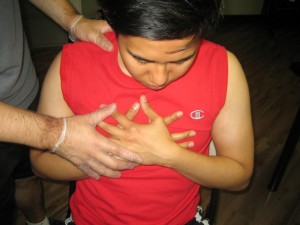Fact Checked
Overview Of Anxiety
- Anxiety is a state of mental health where an individual starts stressing and repeatedly becomes nervous about too many things.
- But when the occurrence of worry and pressure rises and lasts for a lengthy period of time, it turns into an anxiety disorder, where you start stressing and fearing without any main cause to worry.
- Recognize the signs before it’s too late.
Agitation

- Anxiety generally develops from stress and the first thing that occurs with somebody who’s stressed is a feeling of agitation and restlessness.
- If you have experienced some restless nights because of a private issue that’s worrying you, you could be stressed.
- You have anxiety if your sleep gets affected by every issue in your life.
Irritability
- This is due to lack of adequate sleep and continuous worry or frustration throughout the day.
- If you can’t concentrate on anything else and keep stressing about the issues in your life, then it’s definitely a sign of an anxiety disorder.
Heart Rate Increased
- Generally, the heart might start beating at a quicker rate than normal.
- Individuals with anxiety disorders will have palpitations.
Breathing Difficulty
- People who are stressed will have a shortness of breath accompanied with an increased heart rate.
Muscle Stiffness
- With so many fluctuations taking place within the body, quite a few hormones are released to fight the situation.
- These hormones affect your entire body including the muscles.
- The muscles might become rigid and cause a piercing pain.
Bowel Movement
- Sometimes nervousness can negatively affect the digestive system and lead to diarrhea, upset feeling in the belly and stomach pain.
Light-headed
- Panic and anxiety can even cause vomiting and you may feel light-headed.
- Strain and anxiety affect every individual in a different way. So you might not have all the signs as someone else.
- Generally speaking, if you find that some problem has been worrying you, it’s better to seek assistance from a therapist or someone close to you.
